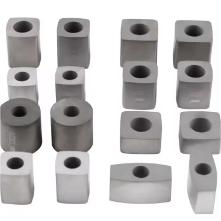**Will That Wrist Metal Make You Beep? Airport Security Unzipped**
(Do Metal Plates In Your Wrist Set Off Metal Detectors)
Airports. Construction sites. Concert venues. We’ve all walked through those metal detector arches, maybe holding our breath a little. You wonder: “Will my keys set it off? My belt buckle?” But what if the metal is *inside* you? Specifically, what if you have metal plates holding your wrist together? The question pops up surprisingly often: **Do metal plates in your wrist set off metal detectors?** Let’s dive into the metal maze and find out.
**1. What Are Wrist Metal Plates?**
Think of wrist metal plates as tiny, internal splints. Doctors use them when bones in your wrist break badly or don’t heal right. These plates are usually flat pieces of medical-grade metal. Surgeons attach them directly to the bone using small screws. Their job is simple: hold the broken pieces firmly together so the bone can mend solidly. It’s like having a miniature scaffold inside your wrist. The plates stay put permanently unless problems arise. Materials matter a lot. Most modern plates are made from titanium or special stainless steel alloys designed just for medical use. These materials are chosen because they are strong, lightweight, and, crucially, well-tolerated by the human body. They don’t rust or corrode inside you. They become a permanent part of your skeleton’s repair system.
**2. Why Metal Detectors React (Or Don’t)**
Metal detectors work by creating a magnetic field. Walk through one, and this field surrounds you. If you carry a significant amount of metal, it disrupts this field. The detector senses this disruption and sounds the alarm. It’s all about the metal’s size, type, and location. Big chunks of ferromagnetic metal (like iron or steel that magnets stick to) are easiest for detectors to spot. Your wrist plate, however, is small and flat. More importantly, the metal used matters hugely. Titanium, the superstar of modern implants, is not ferromagnetic. It doesn’t play well with magnets. Airport walk-through detectors are calibrated to find large threats like guns or knives, not tiny medical implants. They need a bigger metal mass to trigger the alarm. Surgical stainless steel used in older plates has some ferromagnetic properties. Even so, the small size often means it flies under the detector’s radar. The detector’s sensitivity setting is key. High-security sites might use more sensitive machines than your average airport checkpoint.
**3. How Likely Your Plate Will Trigger the Alarm**
So, will *your* specific plate make you beep? The answer is usually no, especially with modern titanium implants. Many people with wrist plates zip through airport security without a hitch. Titanium is the gold standard now. Its non-magnetic nature makes it very stealthy. Surgical stainless steel implants carry a slightly higher chance, but still low. The small size is the main factor limiting detection. Think about it: the plate is thin, maybe a few inches long, screwed tightly to bone deep inside your wrist. It’s not a big, loose chunk of metal. Airport security focuses on larger objects. Construction site detectors might be more sensitive. High-security government buildings often use powerful detectors. Context matters. If the detector *does* beep, it’s likely not pinpointing your wrist plate alone. It could be reacting to other metal you forgot about – jewelry, coins, a belt buckle, even large metal zippers or underwire bras. The plate might contribute if combined with other items, but solo? Unlikely.
**4. Applications Beyond the Airport**
Knowing your plate probably won’t cause a scene is reassuring. It means freedom to live your life. Travel becomes less stressful. Navigating airport security is a breeze for most plate owners. This knowledge applies in many places. Music concerts and sports stadiums often use security arches. Courthouses and some office buildings have them. Even some schools or museums employ walk-through detectors. Construction jobsites frequently require passing through metal detectors for safety. Workers with wrist plates can generally do this without issue. Factory settings might have similar security. The key takeaway is predictability. You can plan for security checks without undue anxiety. Carry your medical implant card if you have one, but expect to pass through quietly. Focus on removing obvious metal items instead. Your wrist hardware is likely the least of your worries.
**5. Metal Plate Detector FAQs**
Let’s tackle the burning questions head-on:
* **Q: Will my wrist plate definitely set off the alarm?**
A: Probably not. Modern titanium plates rarely do. Older stainless steel plates have a low chance. The small size is the main factor.
* **Q: Should I tell security about my plate?**
A: You don’t *have* to announce it. Most people pass through fine. If the alarm sounds, politely inform the officer you have a metal orthopedic implant in your wrist. They are trained for this.
* **Q: Do I need a medical card or doctor’s note?**
A: It’s not usually required. Carrying one can speed things up if the alarm does go off. Ask your surgeon for an implant ID card. Keep it with your ID.
* **Q: What if the detector beeps?**
A: Stay calm. Tell the security officer about your implant. They will likely use a handheld wand to scan you. The wand might beep near your wrist. They may then do a quick pat-down of that area. It’s standard procedure.
* **Q: What about MRIs? Are plates safe?**
(Do Metal Plates In Your Wrist Set Off Metal Detectors)
A: This is different! MRI uses powerful magnets. Titanium implants are generally MRI-safe. Some stainless steel implants might not be safe or could cause image distortion. *Always* tell the MRI technologist about *any* metal implants before your scan. They know the specific risks for your device. Metal detectors and MRI magnets are very different technologies. Safety in one doesn’t guarantee safety in the other.
Inquiry us
if you want to want to know more, please feel free to contact us.


